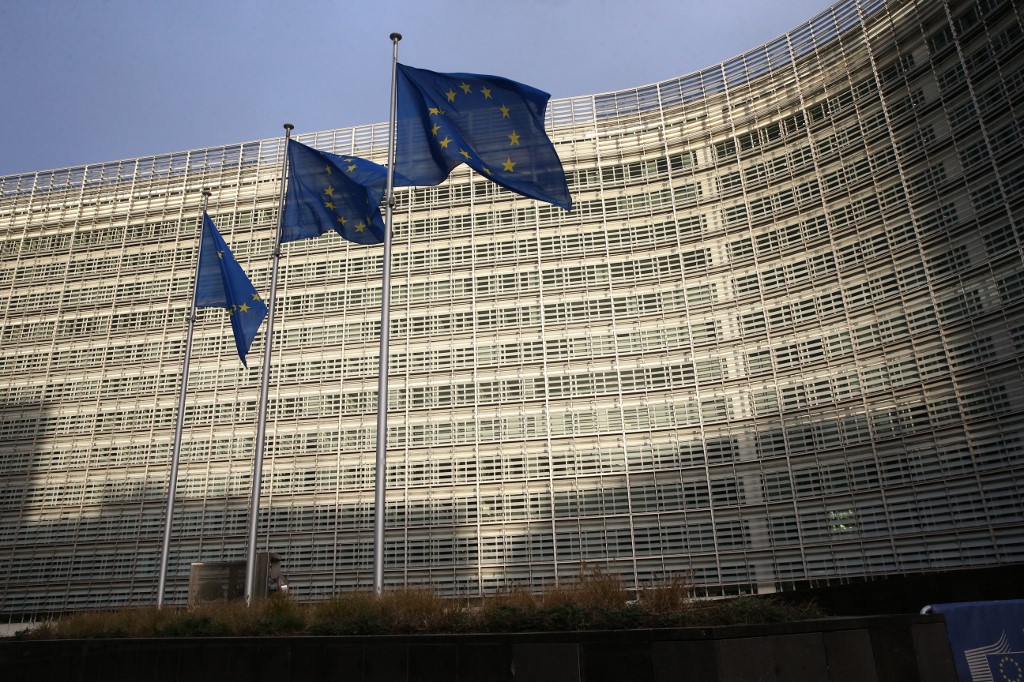The European Commission in its yearly report on Turkey released on Wednesday said there are “serious deficiencies” in the functioning of Turkey’s democratic institutions, underlining continuing democratic backsliding and structural deficiencies in the presidential system during the reporting period.
According to the commission’s 2023 Report on Turkey, the country’s constitutional architecture kept powers centralized at the level of the presidency, failing to ensure a sound and effective separation of powers between the executive, the legislature and the judiciary.
It was noted that the ineffective checks-and-balances mechanism means that the executive branch is democratically accountable only through elections, in the latest of which “biased media coverage and the lack of a level playing field gave an unjustified advantage to the incumbent,” President Recep Tayyip Erdoğan.
Political pluralism continued to be undermined by the targeting of opposition parties and individual members of parliament, the report said, adding that the government’s pressure on mayors from opposition parties continued to weaken local democracy, while most regulatory authorities remain directly linked to the presidency.
“The recommendations by the Council of Europe’s Venice Commission on the presidential system remain unaddressed,” according to key findings of the report.
It was underlined in the report that there was no progress in resuming a credible political peace process to resolve the Kurdish issue, which refers to the demand for equal rights by the country’s Kurdish population and their struggle for recognition.
Serious backsliding regarding civil society issues continued, according to the report, with civil society organizations facing increased pressure and shrinking space to operate, which limited their freedoms of expression, association and assembly. The implementation of the Law on preventing the financing of the proliferation of weapons of mass destruction placed further restrictions on civil society organizations.
In the area of the judiciary, the country remains at an early stage of preparation, the report also stated, adding that serious backsliding continued and, despite several judicial reform packages in recent years, the structural deficiencies in the judicial system remained unaddressed. The continued refusal to implement certain rulings of the European Court of Human Rights (ECtHR) and the lack of objective, merit-based, uniform and pre-established criteria for recruiting and promoting judges and prosecutors continuing to be matters of concern.
Corruption also remains a problem, according to the report, with no progress in the reporting period and legislative gaps still existing in several fields of the fight against corruption.
The December 17-25 bribery and corruption investigations shook the country back in 2013. The probe implicated, among others, the family members of four cabinet ministers as well as the children of then-prime minister and current president Erdoğan.
Investigations led to the resignation of four Cabinet ministers, to which Erdoğan responded by having hundreds of police officers and members of the judiciary detained and some arrested for alleged illegal activity in the course of the corruption investigations.
According to the report, the deterioration of human and fundamental rights continued in Turkey in 2023, with the human rights action plan adopted in 2021 failing to address critical issues and improve the overall human rights situation.
On freedom of expression, the serious backsliding continued, and there was no progress in the area of freedom of assembly and association, the commission said, noting that neither private nor public media ensured editorial independence and impartiality in their coverage of the May 2023 election campaign, detracting from the ability of voters to make an informed choice.
Turkey continued to make significant efforts to host and meet the needs of one of the largest refugee communities in the world, the report also stated, adding that access to public health for migrants and refugees should be improved.
Turkey has become the world’s leading host country for refugees, with 3.6 million individuals seeking shelter, according to a recent United Nations High Commissioner for Refugees (UNHCR) report.
Regarding Russia’s war against Ukraine, the commission said Turkey condemned the Russian military aggression and facilitated the export of Ukrainian grain and the exchange of prisoners, adding, however, that the country refrained from aligning itself with the EU’s restrictive measures against Russia and significantly intensified its trade and economic ties with it, with the country’s economy becoming more dependent on Russia in crucial sectors, particularly in energy.

